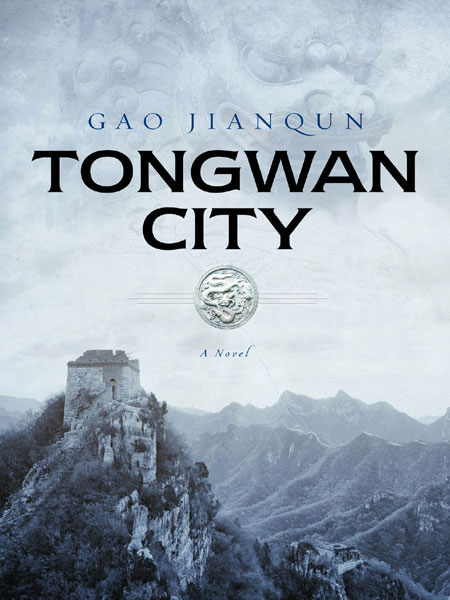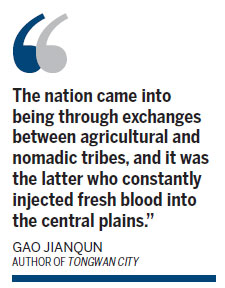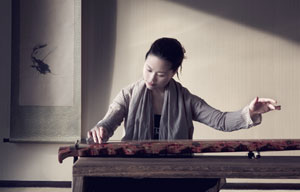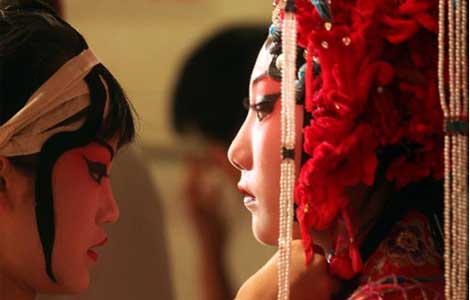

Situated in an area without stones, they are said to have mixed sand with boiled millet and fresh blood - from humans and animals - to make boulders.
His opposite is Kumarajiva, who comes down the sacred altar as a real human being caught up in unbelievable hardships.

In the course of Buddhism's spread throughout China, Kumarajiva was perhaps the only Buddhist master for whom two kingdoms (Qiuci and Latter Liang) were destroyed.
He was kept under house arrest for some 17 years as the reward of the vicious ruler Lyu Guang, who forced him to marry his cousin, a princess, destroying any hopes of attaining higher enlightenment.
Despite all this, Kumarajiva left behind some of the best-known translated Buddhist classics that are chanted to this day. The Chinese Diamond Sutra, for instance, is said to exude an eloquence comparable to its original in Sanskrit.
Besides establishing vivid characters, the author also proves himself an expert in drawing a comprehensive map of the diversified landscape in Central Asia, and establishing a clear outline of the numerous regimes that popped up and down in northwestern China.
His account of the herders' life is especially convincing, down to every detail of taming, grooming and riding a wild horse. The various folk songs and dances captured in ancient poetry and frescoes along the ancient Silk Road come alive in his passionate narration.
At 59, Gao stands out among the writers of his generation with a long-lasting interest in the nomadic tribes. In his youth, he spent five years as a cavalryman at the Altay Mountains in the northern Xinjiang Uygur autonomous region.

Hailed by critics as one of "three chariots" of Shaanxi province alongside Chen Zhongshi and Jia Pingwa, Gao impresses readers with an extensive knowledge of history in his writings, including the novel The Last Xiongnu (1993) and the semi-autobiography The Big Plain (2009).
"I look at the history of China from a different angle (from many other Chinese writers)," says Gao with a heavy Shaanxi accent.
"The nation came into being through exchanges between agricultural and nomadic tribes, and it was the latter who constantly injected fresh blood into the central plains."
Though he doesn't speak English, Gao has read extensively in history and Buddhism. A Study of History and Mankind and Mother Earth by British historian Arnold J. Toynbee, The Empire of the Steppes by French historian Rene Grousset, and books on Mongolian history are some of the sources that broadened his horizons.
Gao had announced that this book would be the last before he "put away his pen". However, one has to point out some flaws in the Chinese version.
Repetition could create a rhythm of sorts, but you might feel your patience wearing thin by the fourth time the author talks about some princess being married off to appease Xiongnu chieftains.
Instead of easing the reader into the story, Gao often jumps into the tale to warn readers of what's going to happen.
Throughout the book, most characters speak in contemporary Mandarin. But Helian Bobo, who was illiterate, occasionally speaks in a somewhat awkward classical form.
"Those passages come from historical records," Gao explains. "When you put them at the right scene, you get a feel of the real person."
Hopefully, these ruffles will be smoothed in the English version. Paul Harrington, vice-president and associate publisher of CN Times Books, said in an e-mail that changes would be made, "but only those absolutely necessary to make the work more easily understood and enjoyed by Western readers".
"I hope that my books will one day make it to the bookshelf of a common family in Western mainstream society," Gao says.
|
|
|



